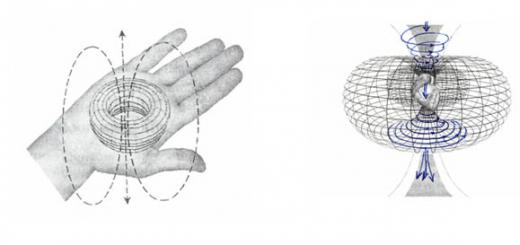Good future that awaits us
In 2030, in line with Moore's Law, we will see the pace of change accelerate as we move closer to a world of true abundance. Here are eight areas where we will see positive changes in our lives in the next decade:
1. In the future, you can buy human brains for $1,000
As early as 2025, $1,000 will buy a computer device capable of computing at 10^16 cycles per second (10,000 trillion cycles per second) equivalent to the processing speed of the human brain.
2. Trillions of sensors everywhere
The Internet of Everything provides network connections between devices, people, processes and data. By 2030, IoE will exceed 100 billion connected devices, each with a dozen or more sensors collecting data. This will result in resource savings and usability, leading to a data revolution beyond our imagination. According to the latest Cisco report, IoE will generate $19 trillion in additional value.
3. Perfect knowledge
We are moving towards a world of perfect knowledge. With a trillion sensors collecting data from everywhere (autonomous vehicles, satellite systems, drones, wearables, cameras), you can learn anything you want, anytime, anywhere, and request that data to answer questions and generate your own ideas.
4. In total there will be 8 billion people - Internet users
Facebook (Internet.org), SpaceX, Google (Project Loon), Qualcomm and Virgin (OneWeb) plan to bring global connectivity to every person on Earth at speeds in excess of one megabit per second.
Internet consumers will increase by 5 billion, from three to eight billion users connected to the Internet by 2030 will increase, while adding new consumers to the global economy. They will provide an additional tens of trillions of dollars flowing into the global economy.
And they won't go online, like we did 20 years ago with the 9600 modem on AOL, but will connect to the network through a 1 Mbps connection and access the world's information about Google, cloud 3D printing, web Amazon services, artificial intelligence with Watson, crowdfunding, crowdsourcing, and more.
5. What will the health care look like in the future?
Existing healthcare facilities will be eliminated as new business models emerge with better and more efficient care. Thousands of startups as well as today's data giants (Google, Apple, Microsoft, SAP, IBM, etc.) will enter this lucrative $3.8 trillion healthcare industry with new business models that dematerialize, demonetize and democratize today's bureaucratic and inefficient system.
Biometric sensing (wearable items) and AI will make each of us the head of our own health. Large-scale genome sequencing and machine learning will allow us to understand the cause of cancer, heart disease and neurodegenerative diseases and what to do about it. Robotic surgeons can perform autonomous surgical procedures perfectly (every time) for pennies. Each of us will be able to grow a heart, liver, lung or kidney when we need it, instead of waiting for the death of a donor.
6. Augmented and virtual reality
The billions of dollars invested by Facebook (Oculus), Google (Magic Leap), Microsoft (Hololens), Sony, Qualcomm, HTC and others will lead to a new generation of displays and user interfaces.
The screen we know - on your phone, computer and TV - will disappear and be replaced by glasses. It won't be a flashy Google Glass, but the stylish equivalent of what well-dressed fashionistas wear today. The result will be a major shift in a number of industries, from consumer retail to real estate, education, travel, entertainment and the way people work.
7. Artificial intelligence, the creation of “Jarvis”
Artificial intelligence research will make headway in the next decade. If you think Siri is useful now, the next decade's generation of Siri will be much more like Iron Man's "JARVIS", with enhanced abilities to understand you and respond to you like a real person.
Companies such as IBM Watson, DeepMind and Vicarious will continue to develop next-generation AI systems. Ten years from now, your computing device will be able to listen in on all your conversations, read your emails, and scan your biometrics, because the benefits and convenience of this system will be secure and huge enough.
8. Blockchain
If you haven't heard of blockchain yet, I highly recommend you check it out. You may have heard of Bitcoin, which is a decentralized (global), democratized, highly secure cryptocurrency based on the blockchain. But the real innovation is the blockchain itself, a protocol that allows secure, direct (without intermediaries) digital transfer of value and assets (e.g. money, contracts, stocks, IP). Investors such as Mark Andreesen have poured tens of millions into the development and see it as an opportunity as important as the creation of the Internet itself.
Bottom line: we live in the most exciting time ever
We live in incredible times where the only constant is change and the rate of change is ever increasing...
The predictions and prophecies of Abel tell about the future of mankind and Russia and excite the minds of people for the past three centuries. Let's analyze what the famous monk told the world about.
Abel was born into an ordinary peasant family, even before the abolition of serfdom - at the beginning of 1757. He remained unknown until the age of 39, and then he met General Samoilov, which influenced the formation of a monk as a soothsayer.
Even in his youth, Abel was already beginning to write his prophecies. He stated predictions in his written works, for which he was repeatedly prosecuted by law. For most of his youth and maturity, the monk was not in a quiet cell, but in prisons because of his attempts to convey his truth to people.
At the age of 39, he met General Samoilov, and he asked what the seer was prophesying. Abel said that "on the night of November 6, the empress will die." Shocked by the prediction, the general ordered the monk to be sent to the Peter and Paul Prison.
However, the prediction came true, Paul took the place of the empress and ordered the release of all prisoners from prisons. So Abel received freedom, and the fame of his predictions went around Russia. The new emperor himself wanted to see the soothsayer and kissed him for the fulfilled prophecy.
Paul asked the monk to give a forecast about his fate in the near future, but Abel did not answer. He continued his service in the Nevsky Monastery under the guidance of a just and intelligent abbot. A year later, the soothsayer was sent to serve God in another monastery due to the fact that he predicted the time of death for other monks and "composed fables."
In order for Abel to stop, according to the ruler of the Russian state, “doing stupid things,” he was transferred to the Valaam monastery with very strict conditions of service. But this did not prevent the soothsayer from writing the first handwritten version of the "Zero Scary Book" with new frightening prophecies. This book was read by the metropolitan and the secret chamber, after which the seer was again sent to Petropavlovka in custody.
Prophecies for the Head of State
The emperor himself paid a visit to the seer in the company of a favorite. Witnesses of the event claim that before talking with Abel, the emperor and his companion were cheerful, but after they came out frightened and frowning, the girl was crying.

On the night after the conversation with the seer, Paul could not sleep for a long time. He wrote a message with the promise "To reveal to the heir to the throne no earlier than on the hundredth day from the minute of my death." From that moment on, some oddities began to be noticed in the behavior of the emperor. He was in a state of thought, then he was depressed, then he was afraid of something.
This came from the fact that Abel predicted an untimely tragic death to Paul, which later came true - the emperor was killed as a result of the conspiracy of his heir in 1801.
Abel's New Prophecies
The next emperor, Alexander, ordered the monk to be rescued from captivity. However, Abel did not calm down and continued to give terrible predictions:
- He announced the coming bloody battles with the Gauls, the difficult siege and the devastating mass fires in the capital.
- Abel also predicted a military confrontation with the French: "On June 12, 1812, a strong and powerful tsar will come, who will enter the gates of Moscow." Looting, arson of churches, fire in the capital - it all came true
After his release in 1813, the seer went to Jerusalem and began to live in the Athos monastery. Only towards the end of his life, suffering from hunger and disease, did he return to his homeland, having managed to tell his last prediction - Nicholas the First, the youngest of all heirs, would ascend the throne.
Abel's predictions about the future of Russia
Considering that many of Abel's prophecies have already come true, it is worth listening to his predictions. He told a lot about the future and destiny of our country.

Here are the well-known fulfilled and yet unfulfilled prophecies of the seer:
- He predicted the execution of Nicholas in 1918 and the death of the Romanov dynasty
- The prophecy about the reign of Boris Yeltsin, the resignation of the president and the rise to power of Vladimir Putin came true
- Abel predicted that "the second Boris, the giant titan" would come to power. During the reign of this man, the country will come at a loss, Russia will suffer many troubles. But after that, a new “man of short” stature will ascend the throne, who will ascend the throne three times and direct the state on the path of economic development.
- In the 21st century, many difficulties await Russia - this is a period of great trials for the Russian people. A person will come to power who will hold on to his chair with all his might.
- Abel believed that 2024 would be a special time for Russia. At this time, the “blessed king” will ascend the throne, and from that moment on, the country will develop by leaps and bounds, and the life of citizens will improve
- But immediately after, the “Great Potter” will come to the pinnacle of power, who will deal with the enemies of the country and lead the state out of the crisis period, turn Russia into a great power
The prophecies about Gorbachev and Zyuganov came true. Of course, the prophet did not name names, but in his descriptions the image of these rulers is easily guessed. Most of Abel's predictions came true, which allows you to trust his opinion and listen to him.
Apocalypse Predictions
The most recent prophecies of the famous seer date back to 2892. He claimed that during this period the real end of the world would come. Researchers tend to believe that the predictions are about the reign of the Antichrist.
In the texts of the prophecies, Abel told the darkness into which the earth would plunge for a whole millennium. The monk claimed that humanity would lose its mind and become an easily controlled herd.
After a millennium, the dead will rise, and the living will change dramatically. Believers will be granted eternal life, and sinners will go to purgatory. Thus, everyone will receive according to their deeds and merit.
It is noteworthy that some of the prophecies are kept in the country's security service, including Abel's predictions.
Many of the monk's prophecies have already come true, and the rest are quite similar to the truth. Therefore, there is every reason to believe in them.
Future with aliens - why not? Some believe that the aliens are already among us. Finding extraterrestrial intelligent life is likely to be difficult, borderline impossible. It will be necessary to develop space technologies to a qualitatively different level, to take all possible precautions ... But the end of the trademark "loneliness in the universe" is definitely worth it.

An off-Earth future is a sad, but not the worst option. Our planet can be destroyed by natural disasters, or we simply run out of minerals, and then we have to look for a new home. Mars seems like a good starting point... but the main dreams, of course, are related to the colonization of other star systems.

A future with limitless energy and a clean environment can be achieved through the invention of advanced nanorobots. They would purify water and air, while providing for the needs of mankind by collecting solar energy. Given the current problems of the Earth, such a move would be desirable to see as soon as possible.

A future without the problem of overpopulation. The population of the Earth is growing by 1-1.5% every year, and at this rate in a hundred years it will double. And if there is enough space on the planet for a hundred times more people, then the issue of world hunger is much more acute. The way out is not only a technology that allows you to create nutritious and cheap food “out of thin air”, but also the correct distribution of material resources.

The technological future implies not only the development of technology, but also a literal fusion with it. Today, we use information and entertainment gadgets more and more; perhaps not far off the day when the displays will be built right in the eye? The merger of man and computer is not as scary as it seems - at least it will be possible not to be afraid of the uprising of machines.

A future with intelligent machines is a logical continuation of the previous point. If you are not lucky to meet aliens, intelligent robots created by us can become our neighbors. Considering how much artificial intelligence will develop over a thousand years, it will not be boring for sure.

The study of space from Earth will play a crucial role in the future. We will be able not only to understand how the universe works, but also to predict any cosmic dangers that threaten our planet in order to effectively prevent them. In addition, no one canceled the search for signs of extraterrestrial intelligence and new planets for colonization.

Space travel in the future we would like to see should be as easy as moving around on Earth. It is not only the endless technological aspects that must be taken into account, but also the negative impact that a long stay in space has on people. Perhaps this will be solved by modifying human DNA.

Extending human life in the future is one of those tasks that is unlikely to ever stop. The solution is medical nanorobots that cleanse and protect the body along with leukocytes, slow down aging and, of course, heal cancer. And that brings us to the next point...

Immortality in the future is the very ideal that if not all, then the vast majority of people count on. Whether it will be achieved through biotechnology, nanotechnology or the fusion of people with machines is not so important. In 1800, the average life expectancy was 37 years, today it is about 70. Will we reach the limit or will we be able to break it? Everything depends on ourselves.
We will not touch on options like the enslavement of humanity by aliens or robots, a zombie apocalypse or an ordinary world nuclear war - science fiction writers and Hollywood will gladly do this for us. Let's try to look into the distant future with a positive - maybe one of us will even be able to live up to it?
For example, Professor Steve Jones from University College London, says that the driving forces of evolution no longer play an important role in our lives. Among the people who lived a million years ago, in the truest sense of the word, the fittest survived, and the hostile environment had a direct impact on the human appearance. In today's world with central heating and plenty of food, mutations are much less likely.
However, there is a possibility that our bodies will develop further. Man can continue to adapt to the changes taking place on our planet, which is becoming more polluted and dependent on technology.
According to the theory, animals evolve faster in an isolated environment, while humans living in the 21st century are not isolated at all. However, this issue is also controversial. With new advances in science and technology, people have been able to exchange information instantly, but at the same time, they have become more isolated than ever before.

Color of the skin
Yale University professor Steven Stearns says that globalization, immigration, cultural diffusion and the availability of transportation contribute to the gradual homogenization of the population, which will lead to the averaging of facial features. Recessive traits in humans, such as freckles or blue eyes, will become very rare.
In 2002, a study by epidemiologists Mark Grant and Diana Lauderdale found that only 1 in 6 non-Hispanic white Americans had blue eyes, while 100 years ago, more than half of the US white population was blue-eyed. The average American's skin and hair color is predicted to darken, leaving very few blondes and people with very dark or very fair skin.
In some parts of the planet (for example, in the USA), genetic mixing is more active, in others - less. In some places, unique physical traits, adapted to the environment, have a strong evolutionary advantage, so people will not be able to say goodbye to them so easily. Immigration in some regions is much slower, so, according to Stearns, the complete homogenization of the human race may never happen. However, in general, the Earth is becoming more and more like a big melting pot, and the scientist said that in a few centuries we will all become like Brazilians.
It is possible that in the future people may acquire the ability to consciously change the color of their skin through the artificial introduction of chromatophores into the body. (pigment-containing cells present in amphibians, fish, reptiles). Maybe there is another method, but in any case it will give some advantages. First, interracial prejudice will finally come to naught. Secondly, by being able to change, it will be possible to stand out in modern society.

Growth
A trend towards an increase in growth has been reliably established. Primitive people are believed to have had an average height of 160 cm, and over the past centuries, human growth has been constantly increasing. A particularly noticeable leap has occurred in recent decades, when human height has increased by an average of 10 cm. This trend may continue in the future, as it largely depends on the diet, and food is becoming more nutritious and affordable. Of course, at the moment, in some regions of the planet, due to poor nutrition with a low content of minerals, vitamins and proteins, this trend is not observed, but in most countries of the world people continue to grow. For example, every fifth inhabitant of Italy is taller than 180 centimeters, while after the Second World War there were only 6% of such people in the country.

the beauty
Researchers have previously found that more attractive women have more children. than less attractive ones, and most of the children born by them are girls. Their daughters grow up into attractive mature women, and the pattern repeats itself. Scientists from the University of Helsinki concluded that the trend towards an increase in the number of beautiful women is increasing with each new generation. However, the trend does not apply to men.
Nevertheless, the man of the future is likely to be more beautiful than he is now. His body structure and facial features will reflect what most are looking for in partners today. He will have finer features, an athletic build and a good figure.
Another idea, proposed by evolutionary theorist Oliver Curry of the London School of Economics, seems to be inspired by ideas from classic science fiction. According to his hypothesis, the human race will eventually be divided into two subspecies: the lower class, consisting of short men, similar to underdeveloped goblins, and the upper class - tall, slender, attractive and intelligent superhumans, spoiled by technology. According to Curry's forecasts, this will not happen soon - in 100 thousand years.

big heads
If a person continues his development, turning into a more complex and intelligent being, his brain will become larger and larger.
With technological progress, we will depend more and more on the intellect and the brain and less and less on our other organs.
However, paleontologist Peter Ward of the University of Washington in Seattle disagrees with this theory. “If you have ever experienced or witnessed childbirth, then you know that with our anatomical structure, we are on the very edge - our large brains are already causing extreme problems during childbirth, and if they were getting bigger and bigger, then this would cause more maternal mortality during childbirth, and evolution will not follow this path.”

Obesity
The results of a recent study by scientists from Columbia and Oxford Universities predict that by 2030 half of the US population will be obese. That is, there will be 65 million more adults with problem weight in the country.
If you think that Europeans will be slim and elegant, then you are wrong. Obesity rates have more than doubled in most European Union member states over the past two decades, according to a report published by the Paris-based Organization for Economic Co-operation and Development. As a result, on average, more than 15% of adult Europeans and one in seven children suffer from obesity, and the trends are disappointing.
Will the people of the future become obese and lazy creatures, like the characters from the cartoon "Wally"? All in our hands. There are other points of view on this matter. The fact is that modern diets are high in fat and cheap "empty calories". Currently there is enough negative attitude towards the problem of obesity, which will make people in the future better fit and picky eaters. With the popularization of the concept of proper nutrition, as well as with new technologies "", everything will fall into place.
When humanity finally understands healthy food, it is likely that heart disease and diabetes, which are currently one of the leading causes of death in developed countries, will disappear.

hairline
Homo sapiens is often jokingly called a naked ape. But, like all mammals, humans grow hair, of course, much less than our cousins and hominin ancestors. Even Darwin in The Descent of Man stated that the hair on our bodies is a vestige. Due to the ubiquity of heating and affordable clothing, the former purpose of body hair has become obsolete. But the evolutionary fate of hair is not easy to predict accurately, because it can act as one of the indicators in sexual selection. If the presence of body hair continues to be attractive to the opposite sex, then the gene responsible for it will remain in the population. But it is likely that people in the future will have much less hair than they do today.

Impact of technology
Computer technologies, which have become part of our daily lives, will undoubtedly affect the development of the human body. The constant use of keyboards and touch screens can cause our hands and fingers to become thinner, longer and more dexterous, and the number of nerve endings in them will increase dramatically.
As the need to use technical interfaces more frequently increases, priorities will change. With further technological progress, interfaces (naturally, not without surgical intervention) can migrate to the human body. Why shouldn't a person of the future have a keyboard in their palm and learn how to press the conditional OK button with a nod of the head, and answer an incoming call by connecting the index and thumb? Probably, in this new world, the human body will be stuffed with hundreds of tiny sensors that transmit data to external devices. An augmented reality display can be built into the retina of the human eye, and the user will control the interface using tongue movements along the front incisors.

Wisdom teeth and other rudiments
Vestigial organs such as wisdom teeth that are surgically removed can also disappear over time as they no longer serve their purpose. Our ancestors had larger jaws with more teeth. As their brains began to grow and their diets began to change and food became less rigid and easily digestible, their jaws began to shrink. It has recently been estimated that already about 25% of people today are born without the rudiments of wisdom teeth, which may be the result of natural selection. This percentage will only increase in the future. It is possible that the jaws and teeth will continue to shrink and even disappear.

bad memory
and low intelligence
The theory that people of the future will have higher intellectual abilities is also questionable. A study by Columbia University experts shows that our dependence on an Internet search engine greatly damages our memory. The Internet replaces the ability of our brain to remember information that we can easily find on the Web at any time. The brain began to use the Internet as a backup memory. “People are less likely to make an effort to remember something when they know they can always find this information later,” the authors of the study say.
Neuroscientist and Nobel Prize winner Eric Kandel also points out in his article that the Internet makes people dumber. The main problem is that too active use of the Internet does not allow you to focus on one thing. To master complex concepts, you need to pay serious attention to new information and diligently try to associate it with knowledge that is already in memory. Surfing the Web does not provide this opportunity: the user is constantly distracted and interrupted, because of which his brain is not able to establish strong neural connections.

physical weakness
As noted above, evolution follows the path of eliminating signs that are no longer needed. And one of them can be physical strength. Comfortable transportation of the future, exoskeletons and other machines and tools of our ingenuity will save humanity from the need for walking and any physical activity. Studies show that we have already become much weaker compared to our distant ancestors. Over time, the development of technology can lead to changes in limbs. The muscles will begin to contract. The legs will become shorter and the feet smaller.

Depression
According to a recent study, the population of the United States has fallen into a vicious cycle of constant stress and depression. Three out of ten Americans say they are depressed. These symptoms are most common among people between the ages of 45 and 65. 43% report regular outbursts of irritability and anger, 39% report nervousness and anxiety. Even dentists are faced with more patients with jaw pain and worn teeth than thirty years ago. Because of which? Due to the fact that from tension people tightly clench their jaws and literally grind their teeth in their sleep.
Stress, as experiments on laboratory rats show, is a clear sign that the animal is becoming increasingly unsuitable for the world in which it lives. And as Charles Darwin and Alfred Russell Wallace astutely observed more than 150 years ago, when the habitat is no longer comfortable for a living creature, the species dies out.

Weak immunity
People of the future may have weakened immune systems and become more susceptible to pathogens. New medical technologies and antibiotics have greatly improved overall health and life expectancy, but have also made our immune systems more lazy. We are becoming more and more dependent on drugs, and over time, our bodies may stop "thinking" for themselves and instead rely entirely on drugs to perform basic bodily functions. Thus, people from the future may actually become slaves to medical technology.

selective hearing
Humanity already has the ability to direct their attention to the specific things they hear. This feature is known as the "cocktail effect". At a noisy party amidst many conversations, you may well focus on one particular speaker who has caught your attention for some reason. The human ear has no physical mechanism for this; everything happens in the brain. But over time, this ability can become more important and useful. With the development of media and the Internet, our world is becoming crowded with various sources of information. The man of the future will have to learn to more effectively determine what is useful for him and what is just noise. As a result, people will be less prone to stress, which, of course, will benefit health, and, accordingly, will take root in the genes.

strange faces
Artist Nikolai Lamm and Dr. Alan Kwan presented their speculative vision of what the future will look like. Researchers base their predictions on how the human body will be affected by the environment - that is, climate and technological advances. One of the biggest changes, in their opinion, will affect the forehead, which has been getting wider since the 14th century. The researchers also said that our ability to control our own genome will affect evolution. Genetic engineering will become the norm, and the appearance of the face will be more determined by human preferences. The eyes will get bigger. Attempts to colonize other planets will cause the skin to become darker in order to reduce exposure to harmful ultraviolet radiation outside the Earth's ozone layer. Kwan also expects people to have thicker eyelids and pronounced brow ridges due to low gravity conditions.

post-gender society
With the development of reproductive technologies, reproduction in the traditional way may go into oblivion. Cloning, parthenogenesis and the creation of artificial wombs can significantly expand the potential for human reproduction, and this, in turn, will finally erase the boundaries between a man and a woman. The people of the future will not be attached to a particular gender, enjoying the best aspects of life in both. It is likely that humanity will be completely mixed up, forming a single androgynous mass. Moreover, in the new post-gender society, not only will there be no physical sexes or their supposed signs, gender identity itself will be eliminated and the line between the role models of behavior of a man and a woman will be erased.

flexible skeleton
Many creatures, such as fish and sharks, have a lot of cartilage in their skeleton. Human beings could follow the same evolutionary path to have more flexible bones. Even if not thanks to evolution, but with the help of genetic engineering, this feature would give a lot of advantages and protect a person from injury. A more flexible skeleton would obviously be extremely useful in the process of childbearing, not to mention its potential for future ballet dancers.

Wings
According to Guardian columnist Dean Burnett, he once spoke to a colleague who doesn't believe in evolution. When he asked why, the main argument was that people do not have wings. According to the opponent, "evolution is the survival of the fittest", and what could be more convenient for adapting to any environment than wings. Even if Burnett's theory in this regard is based on immature observations and a limited understanding of how evolution works, it also has its right to exist.
ILLUSTRATIONS.
First of all, let's make it clear right away: these are not predictions. And it's not even a fantasy. Rather, a mathematically calculated forecast for our future. Close and not quite, bright and not very bright. Futurology in general. This science is engaged, among other things, in evolutionary forecasting - what will a person be like in ten years, in a hundred, a thousand ... One of the most prominent and authoritative futurologists is a multimillionaire, Google CTO, optimist and philanthropist Raymond Kurzweil.
They say that Kurzweil once predicted the collapse of the USSR, predicted with an accuracy of a year when a computer would beat a man in chess (the man was Garry Kasparov, the year was 1997) ...

... And how he looked into the water when he said that by 2010 a person will be able to give commands to a computer with his voice, and the computers themselves will also respond to requests with their voice. In general, forecasts that inspire confidence.
"I love you, robot!"
So, he, Ray Kurzweil, claims that by the middle, maximum by the end of the twenties of our century, humanity will reach the point that every moment of life will only increase it. Almost to infinity. Robots will help in this, of course. More precisely, nanorobots that will surf the vastness of the human body, diagnose it for various pathologies and promptly eliminate threats - a kind of special service for individual use. And no diseases for you, no aging ... Hello, eternal youth!
The idea itself, by the way, is not new - screenwriters fantasized about this topic back in the middle of the last century ... But now technology has almost crept up to making fantasy come true.

Frame from the film "Fantastic Journey", 1966
Team of reduced doctors in human body
“People say they don't want to live past 90. Like, beyond this threshold there is only decrepitude… But, you know, I spoke with those who are 90 years old. They want to live to 91, they want to live to 100. People also tend to think that death gives meaning to life because it limits its time, but in reality death is a robber. A robber who takes away all meaning and all accumulated knowledge, ”Raymond Kurzweil anticipated our questions in an interview.
Later, the futurist continues, man and computer will merge so much with each other that, in the end, there will be nothing left for us but to recognize that the artificial mind has not just intelligence, but also consciousness! From this moment on, the boundary between the robot and the crown of the creation of nature will begin to blur.
At first glance, rather funny.
But only until you take a look, for example, at a certain British company that is putting into mass production the sex robot Harmony (translated from English - Harmony). Slim waist, big bust, big eyes...
Video: instagram.com
Such “happiness” will cost a little more than eleven and a half thousand pounds sterling. Now it is about eight hundred and fifty thousand rubles. Cheaper car, it turns out. And in this regard, the opponents of intimate technical progress have a reasonable claim: will a person (a creature that is extremely addicted) endanger his entire gene pool? Not today or tomorrow, this "Harmony" will be taught to cook borscht, iron shirts and look after the household (purely mechanically, but still). She herself, for the most part, is silent and agrees with everything. Why then a real relationship? However, we digress.
Clumsy, lazy, indifferent geniuses
There is also a second camp of futurologists. Ray Kurzweil has plenty of opponents. They agree with him about the increasing penetration of artificial intelligence into human life, but are not entirely happy about this. Steve Jones of University College London believes that humans can continue to evolve physiologically only under certain circumstances. Such circumstances can be, for example, global cataclysms. Jones' supporters also refer to them as excessive computerization of society. In addition, a person will be so "addicted" to drugs that the body may lose the ability to independently resist even a common cold. And given that the need for direct communication and close contact among people will drastically decrease, our descendants can turn into completely soulless, unemotional, losing the ability to reflect and self-criticize "pets". And this, coupled with minimal physical activity (there are robots all around), supposedly will inevitably lead to muscle atrophy and mass obesity of the species. And there are reasons to believe these forecasts. Already, 35% of US residents, for example, are overweight. By 2030, at least half of the population will be obese. This is a forecast from Columbia and Oxford Universities. And according to a report released by the Paris-based Organization for Economic Co-operation and Development, over the past two decades, obesity rates have more than doubled in most European Union member states.

In the end, for comparison, take a look, for example, at what primitive people looked like. Have you ever seen a primitive man with fat hanging down his sides? Or muscular dystrophy? And no one has seen...

The "man of the future" is not so terrible as his ...
But this, of course, is one of the pessimistic scenarios of human change as a species. For the most part, futurologists are still not so categorical. Indeed, there is something to think about.
So, for example, it is highly likely that people will gradually disappear hairline: the need, except for purely aesthetic ones, disappears due to the availability of a wide variety of clothing. Moreover, neither men nor women, nor on the head, nor anywhere else will have hair. Famous British scientists also explain this by the desire of the organism in the process of evolution to save as much as possible the consumption of water resources. Like, now we wash too much!

Most likely, already in this millennium there will be a mixture of nationalities and races. The reason for this is very high mobility and constant migration from country to country, from continent to continent.

Renowned artist and researcher Nikolai Lamm, along with Alan Kwan, Ph.D. in computational genomics, believes that, among other things, in the process of evolution, a head will grow in humans. And the eyes will also increase, the eyelids will coarsen, perhaps even a second eyelid will appear, and the skin will darken. Lamm and Kwan believe that these changes will occur as a result of the development of other planets in the solar system: in this way, a person will be able to withstand the effects of ultraviolet radiation.

The British tabloid "The Sun", relying on the forecasts of the notorious British scientists, adds to everything else: first of all, the man of the future will become much higher than we are today. Average height - 180-210. The reason is improved nutrition and advances in medicine. Therefore, the number of teeth will also be reduced, since it will not be necessary to chew food thoroughly. By the way, everyone's noses will be the same shape. Of the obvious disadvantages: sorry, but due to a decrease in sexual activity in men, the corresponding organs will also significantly decrease. Hands and fingers will lengthen, and gadgets will be to blame for this, leafing through which, we already spend a good part of our lives.

Sketch of the man of the future according to "The Sun"
True, this army of fans of evolution continues to be opposed by another army of scientists who are convinced that everything that nature could do with man, she has already done. And there can be no more significant changes in appearance. Even after a million years. But it is not exactly. Let’s add on our own: let it be big-headed and moon-faced, even six-fingered and incredibly tall - the main thing is that the person be good!
Ruslan Smykov










